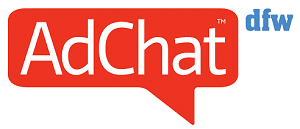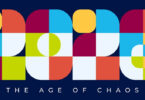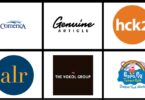You are a brand. As a professional, an individual, it may be difficult to imagine yourself as a brand; you’re used thinking of brands as associated with products, like Coke, or FedEx, or Facebook. But a brand is not a logo, and it’s not a product name (although both contribute to brand recognition). Rather, it’s a promise—a promise of a customer experience, or a level of service, or a lifestyle, or the way you do business. What is your promise?
In this age of social media and digital news, every person is a brand, especially men and women in high profile positions, or, for that matter, aspiring to be. It’s not only important, it’s critical that you own your brand, develop it, protect it, and keep your promise.
Particularly for CEOs and positions that keep require frequent media exposure, consider having a personal brand manager as part of your P.R. and media relations team. Someone dedicated to you, separate as well as integrated with the organization. They go hand-in-hand, and when it is time to move on, your personal brand and resulting reputation go with you.

My brand is CMarie, so I tend to speak in terms of ‘C’. Keep in mind these three Cs as you are developing your digital brand and online brand:
Consistent. With whatever digital platforms you choose (and I’ll offer some insight later in the chapter on how select those platforms) keep the message consistent. While that may seem tricky—what you post on Facebook is infinitely different than what you post on LinkedIn—it’s possible. Make sure that what you stand for professionally is evident everywhere, and in the tone of the social media site. Also, be consistent with your posts. If you are going to do a blog, then be consistent with the frequency of your blogs.
Concise. With any digital space, less is more, so you must say the most with the least amount of words and the most amount of impact. In other words, be clear. As my colleague, writer, and editor extraordinaire, Amy Lemley, likes to say, “Pack a tighter snowball.” This includes the content on your personal and company websites, bios, and scope of work.
Comprehensive. Be concise, but cover the most important points about your work, your impact on the organizations you work for or with, and your career accomplishments. Be present across any digital space that is appropriate for you. Be ubiquitous. You want to be known as the go-to person in your field of expertise, a thought leader. Make that happen by always being in tune with current events and having something to say about them…first. Tweet, blog, share news, and comment on Linkedin. And then go back to the first C—do it consistently.
“How do I know what social media sites to be on?” “How do I keep Facebook separate from my professional life?” “I don’t have time to do twitter and all that stuff!” “Should I have a website?”
When I first started working with a prominent professor at a ranked B-school, we were both new to personal branding. My contributions to date had been with companies and higher education institutions, and she was my first client in personal branding. I knew if I was going to help her and others, I must embrace myself as my own brand. Not CMarie Marketing Studio, my agency—that was an extension of my personal brand—but Connie Glover. And as I coached her and others through the personal branding process my guiding principle was, and is, to put you as your personal brand first. Own that. And then anything else that comes along, such as publishing a book, or becoming a well-known speaker, or landing the high-profile job, is an extension. Because if you do a good job in developing and managing your personal brand that is something you can sustain throughout your career, wherever it goes and however it might change.
Part 2 in this series will address how to develop your personal brand.
Watch Connie’s video about personal branding.








